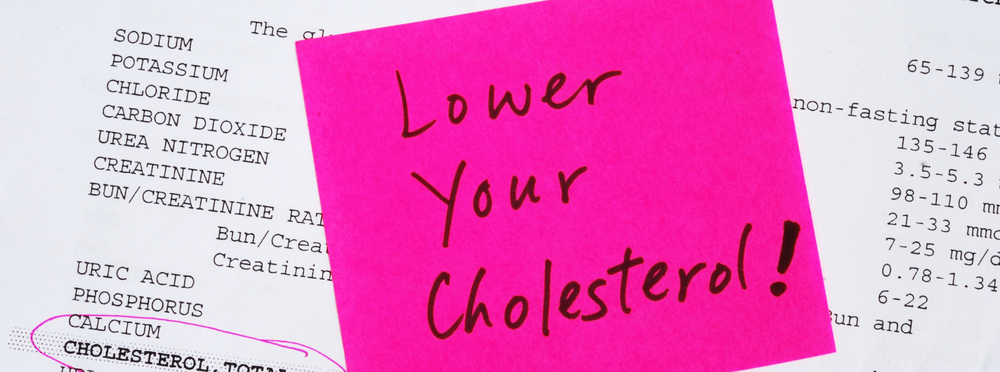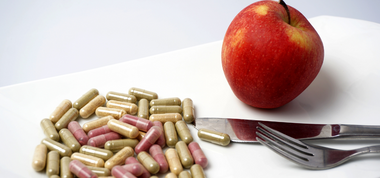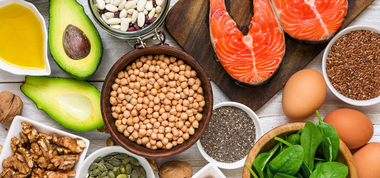Cholesterol is NOT a Myth

You should never view high cholesterol and the impact it has on your heart and vascular health as a joke.
At Step One, we sometimes get feedback from naysayers about how cholesterol is a “myth” and that it’s not “real”, so today on a day that’s full of jokes and pranks, I want to remind you that high cholesterol is very much a real health concern.
High cholesterol is an extensively studied, potent risk factor that has consistently been shown to negatively affect cardiovascular outcomes. And if anyone tells you that it’s not real or doesn’t have an impact on your health or longevity, then the joke is truly on them.
I encourage you to do your own research about the real impact not only of cholesterol but of every risk factor on your heart’s health. If you do this, one of the things you will come to appreciate is the central role nutrition plays in all of it.
We truly are what we eat. But just as food has the power to accelerate and even cause disease, it also has the power to heal.
As a physician that approaches disease prevention and management with the goal of minimizing medication use, I often see patients who don't want to take any medications at all. When it comes to cholesterol, the most frequently cited justification for refusing to take statins (even when they are clearly indicated) is that "cholesterol is a myth".
That may reflect the catchy title of a popular book, but it does not reflect reality. Cholesterol DOES matter. It's actually one of the most extensively studied risk factors for heart and vascular disease, with incredibly consistent findings that the lower your LDL (bad) cholesterol is, the better. And whether you get there through medications, diet or a favorable genetic blueprint, lower LDL levels are associated with a lower risk of cardiovascular events.
As only one piece of proof, here is a summary slide of 10 randomized controlled clinical trials that evaluated heart event rates versus average LDL levels. It's pretty clear cut that the lower a population's average LDL level is, the fewer events that population experiences.

Extrapolated, the graph suggests that average LDL levels of around 30 mg/dL would result in the elimination of events. Turns out, there are genetically blessed individuals who lack PCSK9 (the enzyme that blunts LDL receptor activity) who, over their entire lifetimes, have LDLs in their 30s. And guess what? These individuals almost never get heart disease.
But there is more to this story! There is ALWAYS more. The body is incredibly complex and no one risk factor - or one nutrient - drives everything. Lectins are NOT the sole reason someone is sick! And cholesterol is NOT the sole reason someone gets heart disease or suffers a stroke! I've seen plenty of normal coronary calcium scans in people with high LDL levels. Reductionist thinking can lead us astray - on both sides of an argument.
"The Great Cholesterol Myth" book argues that it's really inflammation that drives risk. Of course it does! And so does high blood pressure. And so does smoking. And so does diabetes. And so does high LDL cholesterol. Heart disease is a MULTIFACTORIAL disease. It's the outcome of the interplay of multiple risk factors (not all of them known), layered on top of the unique genetic makeup of an individual living in a unique environment.
But here's the best thing. Even though it's complex and not entirely predictable, there are still some principles that transcend all the uncertainties:
1. Even though controlling a risk factor like LDL cholesterol is not an absolute guarantee you won't experience a cardiovascular event, the overwhelming majority of the data tells us it will help.
2. Although medications are effective - and can be transformative for some - they are an incomplete solution because they only address one thing at a time. If all you achieve is a perfect cholesterol number through pharmaceuticals but have not addressed other risk factors (or the reason why your cholesterol is high in the first place) you will not be much farther ahead no matter how great your lab results appear.
3. Food is your greatest vulnerability and your greatest opportunity. When you eat poorly, you're not just increasing your LDL. You're negatively impacting MULTIPLE risk factors at the same time. But when you eat right for lowering cholesterol you're eating right to improve blood pressure, lower blood sugar, lose weight - and reduce inflammation. Food is the comprehensive solution to a complex problem.
Cholesterol is NOT a myth. Together with other risk factors, it's a potent mediator of a serious, potentially life-threatening disease. Those that tell you that cholesterol doesn't matter - but that some other single thing does - are the real myth-peddlers.

Tested & Proven Results.
- Cardiologist formulated
- Supported by over 500 publications
- Clinically-proven, in a double-blind randomized trial with Mayo Clinic and The University of Manitoba
80% of participants lowered their cholesterol in just 30 days. With just two servings per day, Step One Foods offers a proven-effective way to naturally lower LDL (bad) cholesterol.
Get heart health tips and articles like this, delivered right to your email.
New articles every week.
You may also like...

Supplements for cholesterol lowering? Not so fast.

You don’t need to avoid foods with cholesterol…except for these



